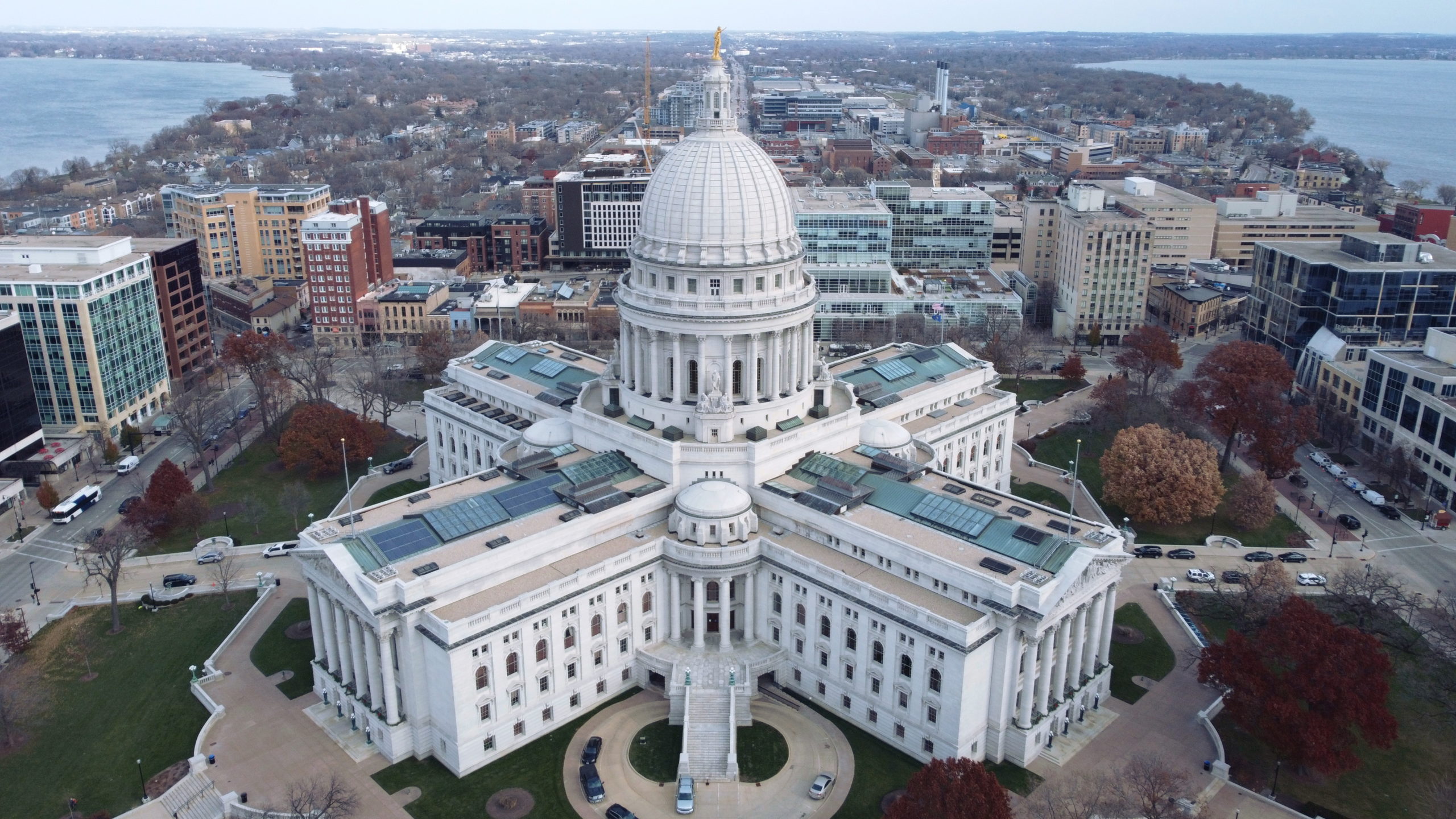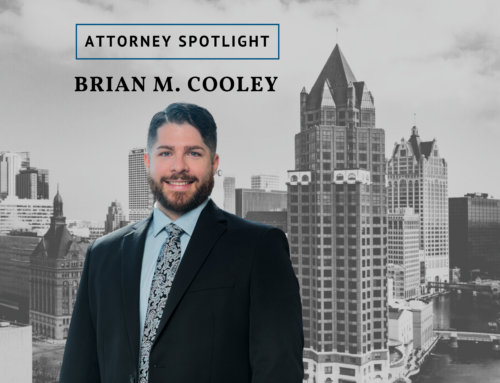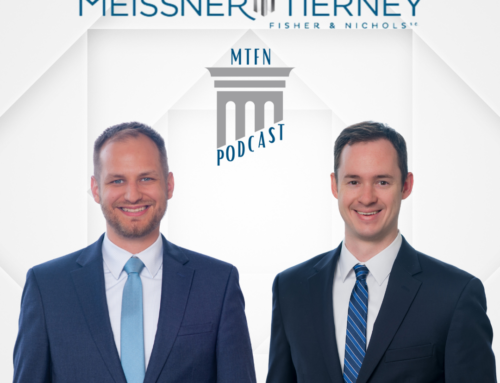With the state’s high court issuing its first decisions of the year, what had been a monthly “preview” column now becomes an “update.” We’ll take a look at the couple cases the court decided over the past several weeks, then turn our attention to the two civil cases set for argument on the court’s December calendar.
Cases Decided
State ex rel. Kormanik v. Brash, No. 2022AP1736-W
Appellate Venue & Supervisory Writ Standard
Decision Filed: October 26, 2022
Public Citation: 2022 WI 67
Our first glimpse of published court action this term came in the form of an order granting a supervisory writ on an appellate venue issue. (Kudos if that was on your bingo card.) The underlying dispute involved guidance from the Wisconsin Elections Commission (WEC) on absentee ballot spoiling in the leadup to the November election. But at this stage, the question was whether the court of appeals properly allowed WEC, as the appellant, to choose which branch of the court of appeals would hear its appeal. Wisconsin Stat. § 751.21 authorizes that practice in some circumstances—but not here, the supreme court unanimously held. It explained that two other statutes, Wis. Stat. §§ 801.50(b) and 227.40(1), direct that appeals in cases challenging the validity of guidance documents should be venued in the district corresponding to where the case was filed.
The order is notable less for its venue analysis and more for its decision to grant a supervisory writ—an extraordinary remedy where the supreme court orders a lower court to take a particular action. These petitions face an exceptionally steep burden and are rarely granted. Nevertheless, the court clearly felt bound by its decision to grant the writ under strikingly similar circumstances four years ago. See State ex rel. DNR v. Wisconsin Court of Appeals, District IV, 2018 WI 25, 380 Wis. 2d 354, 909 N.W.2d 114. Justice Dallet authored a concurrence, joined by Justices Hagedorn and Karofsky, suggesting the DNR decision may have described the availability of a supervisory writ too broadly.
Slamka v. General Heating and Air Conditioning, No. 2020AP128
Labor & Employment
Oral Argument: September 9, 2022
Decision Filed: November 4, 2022
Public Citation: 2022 WI 68
The court’s first merits-docket decision of the year was, well, a dud. Robert Slamka had argued Wis. Stat. § 111.04(3)(a), part of Wisconsin’s right-to-work law, was not preempted by the National Labor Rights Act. The court dismissed the appeal as improvidently granted in a brief per curiam decision. As has become custom, Justice Ann Walsh Bradley concurred to say the court should explain its reasoning when it dismisses a case as improvidently granted.
Saint John’s Communities, Inc. v. City of Milwaukee, No. 2020AP1696
Taxation
Oral Argument: October 6, 2022
Decision Filed: November 22, 2022
Public Citation: 2022 WI 69
Saint John’s Communities challenged the City of Milwaukee’s determination that its facility was not tax-exempt. Under Wis. Stat. § 74.35, a “person aggrieved by the levy and collection of an unlawful tax” may dispute a taxation decision by filing a claim with the local taxation district that collected the tax. But what happens when the taxpayer hasn’t yet paid the tax when it files its claim with the tax district? The entire challenge is procedurally improper and subject to dismissal, according to the supreme court. In a unanimous opinion authored by Chief Justice Ziegler, the court explained that the “plain language of § 74.35 requires a taxpayer to pay the challenged tax prior to filing a claim for recovery of unlawful taxes against a taxation district.” In this case, because “Saint John’s did not pay the challenged tax prior to filing its claim, Saint John’s claim was procedurally deficient.”
Up for Review
Kindschy v. Aish, No. 2020AP1775
First Amendment
Oral Argument: December 1
Following a series of hostile interactions between a nurse practitioner at a Planned Parenthood clinic and a pro-life protester, the nurse practitioner sought and obtained a harassment restraining order under Wis. Stat. § 813.125. The circuit court made a series of factual findings and ordered the protester to stay away from the clinic while the nurse practitioner was working. On appeal, the protester argues his conduct served a “legitimate purpose” and therefore does not meet the statutory definition of harassment. He also argues his conduct towards the nurse practitioner constitutes protected, First Amendment speech regarding a matter of public concern. The court of appeals was unpersuaded, explaining that the protester “cannot shield his harassing conduct from regulation by labeling it a ‘protest.’”
Green Bay Professional Police Association v. City of Green Bay, No. 2021AP102
Public Employment & Arbitration
Oral Argument: December 12
A police officer and his union raise a procedural challenge to discipline imposed after the officer accessed and leaked confidential police department records. On its face, this appeal calls upon the court to determine what pre-discipline notice is needed to satisfy the due process requirements articulated in Cleveland Board of Education v. Loudermill, 470 U.S. 532 (1985), and Wis. Stat. § 164.02(1). But don’t be surprised if that framing buries the lede. The case is postured as a declaratory judgment action seeking to vacate an arbitral award under Wis. Stat. § 788.10. The court of appeals leaned heavily on the steep burden a movant faces when attempting to set aside an arbitral award, so watch for this case’s effect on the reviewability of arbitral decisions.
New to the Docket
Greenwald Family Limited Partnership v. Village of Mukwonago, No. 2021AP69-FT
Appellate Procedure
Petition for Review Granted: November 16, 2022
In this tax case, the court will consider the sufficiency of serving a notice of appeal on the village’s attorney, notwithstanding Wis. Stat. § 66.0703(12)(a)’s direction to serve the village clerk. The court of appeals summarily held that service on the village’s attorney was inadequate.
Pepsi-Cola Metropolitan Bottling Co., Inc. v. Employers Insurance Co. of Wausau, No. 2021AP635
Insurance
Petition for Review Granted: November 16, 2022
MTFN has a representational interest in this case. The discussion here is limited to reporting on the court’s docket and should not be interpreted as offering commentary on the case.
This insurance case calls upon the court to determine the enforceability of a consent-before-assignment provision in a third-party liability policy. The court will also consider whether the specific umbrella liability policies at issue were validly assigned to successor corporations in the years following their issuance. In a 2-1 decision, the court of appeals declined to enforce the consent-before-assignment provision and held that the policies were properly assigned.
Fleming v. Amateur Athletic Union of the United States, Inc., No. 2021AP1054
Employment
Petition for Review Granted: November 16, 2022
Wisconsin Stat. § 893.587 prescribes an extended limitations period for claims against a perpetrator of child sexual assault. In this case, the court will consider, among other things, whether that statute also extends the limitations period for negligent hiring and supervision claims against the abuser’s employer. The court of appeals held the claim was timely under the statute.
Waupaca County v. Golla, No. 2021AP1076
Shoreland Zoning
Petition for Review Granted: November 16, 2022
This case involves a dispute between property owners and a country regarding a side yard setback restriction in a shoreland area. The plaintiffs contend that the county’s general zoning power under Wis. Stat. § 59.69 is limited by Wis. Stat. § 59.692, which restricts local shoreland zoning power. The 62-page court of appeals opinion held that the county’s side yard setback restriction was enforceable.





